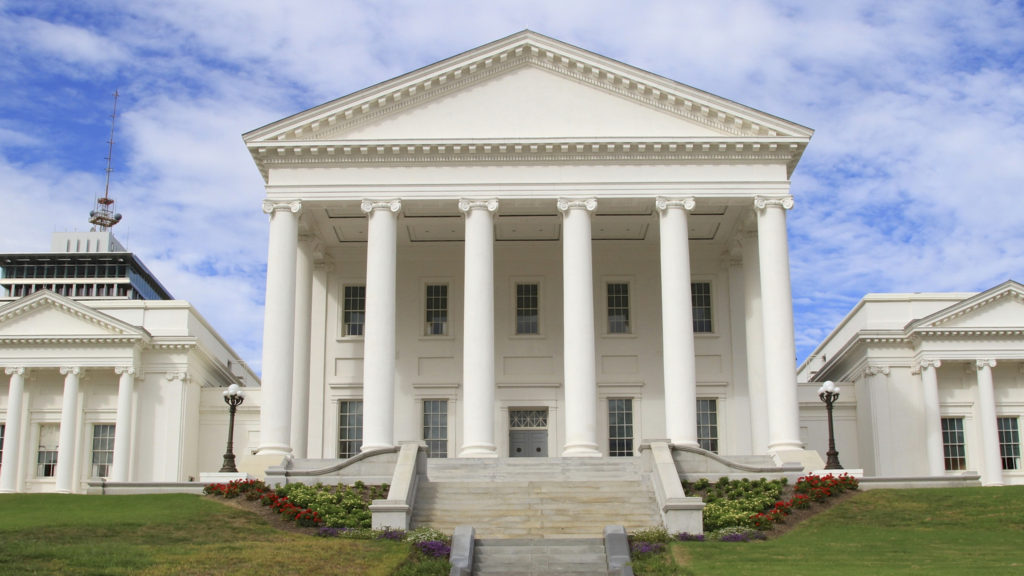Now that election results from the November 7 midterms have been certified in Virginia, news of slight changes to election laws in the Commonwealth coming up in next year’s General Assembly session beginning in January has surfaced. Despite a high, but not record-breaking turnout, most localities ran faultless precincts, while elections in others had fairly large problems. For example, long lines in Chesterfield County led a judge to issue an order to keep polls open until 9:00 p.m., two hours after they close otherwise, in two separate precincts.
Nevertheless, the legislation that may be coming in 2019 follows a study created by a General Assembly subcommittee to investigate election laws and reform that could be made to make Virginia elections run more smoothly, add transparency, and maximize voter participation.
Formed by Speaker of the House of Delegates Kirk Cox (R-Colonial Heights) and Senate Majority Leader Thomas Norment (R-James City), the Joint Subcommittee on Election Review was tasked with discussing issues related to the conduct of elections that were revealed following the aftermath of many close races in the statewide elections in November 2017. Chairman of the House Privileges and Elections Committee Mark Cole (R-Spotsylvania) and Chairwoman of the Senate Privileges and Elections Committee Jill Vogel (R-Fauquier) currently serve as co-chairs.
On Monday, the subcommittee’s members met in Richmond to discuss possible legislative proposals.
Following Delegate David Yancey (R-Newport News) winning his election last year after his name was drawn out of a bowl when the 94th House District, a split precinct, gave exactly 11,607 votes to both him and his Democratic challenger, a change was needed to ensure such a rudimentary measure was never used again. Nonetheless, the tiebreaker led to Republicans keeping a 51-49 majority at the beginning of last year’s session on Bank Street in Richmond.
One proposal to rectify this situation is to have voters break ties in an immediate special election, according to one Democratic lawmaker. However, such a measure would strain the resources of local registrars. As well, it could be tough to have voters fill the polls again after a traditional, “first Tuesday in November” election.
Insofar as split precincts are concerned, one Republican House member is said to forward a constitutional amendment to aid local registrars who must encounter voters who live in two different legislative or congressional districts at the same polling location.
In 2017, 384 voters in the Fredericksburg area were actually given the wrong ballot in split precincts in the county. 110 were wrongly assigned to the 88th District, but should have been in the 28th. 207 voters were wrongly assigned to the 28th but should have been in the 88th. 67 voters were wrongly assigned to the 28th but should have voted in a third neighboring district, the 2nd House district.
In the recent past, the Republican-controlled General Assembly has passed legislation to allow small adjustments to district lines outside of the normal redistricting process to curtail the existence of split precincts. However, Governor Ralph Northam (D) and his predecessor Terry McAuliffe (D) have vetoed the bills, saying it could be misused for political purposes.
Currently, Virginia is one of 35 states that prohibits same-day voter registration. One Democratic House members believes voter participation could be bolstered by doing away with the Commonwealth’s traditional method in which potential voters must register three weeks before Election Day.
Though, this would place a lot of pressure on Virginia’s struggling voter registration system. The Joint Legislative Audit and Review Commission (JLARC) found in September that the Virginia Department of Elections (ELECT) has a faulty IT system, according to their 75-page report. The investigation found that the system registrars use to maintain the list of the Commonwealth’s 5.5 million registered voters is “not sufficiently functional or reliable.”
The Virginia Election and Registration Information System (VERIS) crashed in October 2016, just before the deadline to register to vote in the last presidential election. The situation led to a federal court ordering Virginia to reopen voter registration. Even though the General Assembly has already dedicated $2 million to rebuilding the system, the JLARC report suggested the possibility of a full system replacement.
As Virginia’s General Assembly is set to reconvene in Richmond in under two months, election law may make its way into the top drawer for agenda items as tax reform, school safety, and educational initiatives are likely to dominate the 2019 session.

